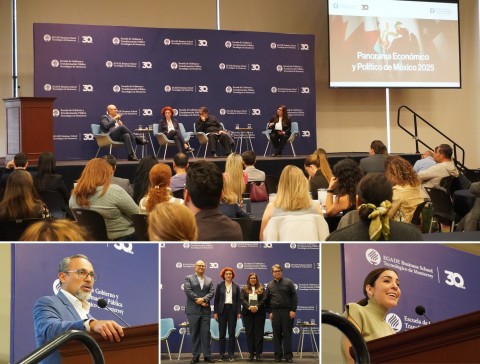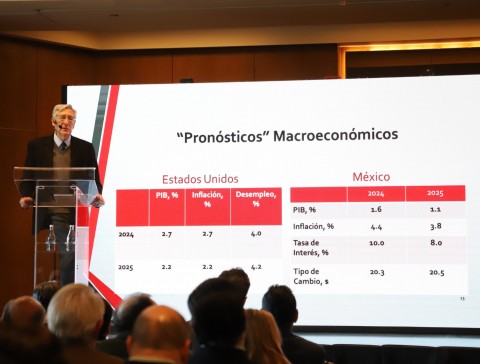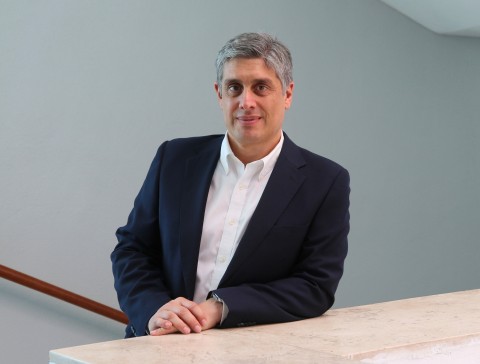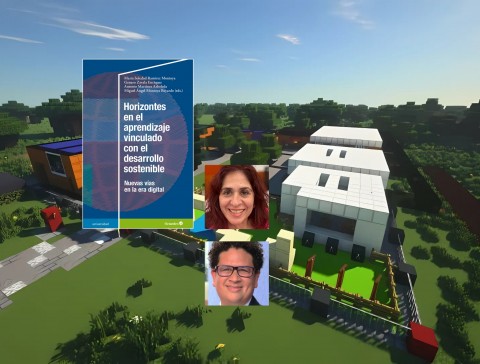María Concepción del Alto Honored with the 2025 Mujer Tec Award for Her Career in Finance and Education
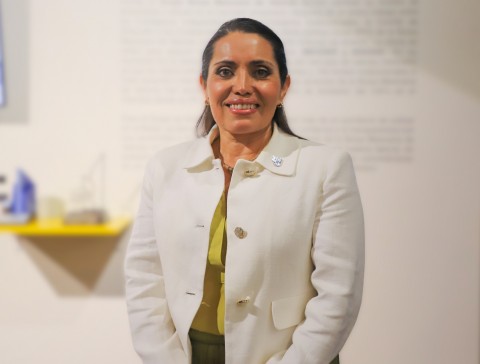
The Mujer Tec Award recognizes the contributions and talent of women within the Tecnológico de Monterrey community and its institutions. The award ceremony will take place on March 12.
By JOSÉ ÁNGEL DE LA PAZ | EGADE BUSINESS SCHOOL
María Concepción del Alto, National Director of the Master in Finance at EGADE Business School of Tecnológico de Monterrey, has been honoured with the 2025 Mujer Tec Award in the special category of "Trajectory", in recognition of her leadership and impact in education and finance sectors.
Del Alto was among the 19 awardees of the 13th edition of the award, announced on January 22.
With more than 25 years of experience, the academic has fostered a culture of equity, inclusion, and professional development for women in leadership positions, contributing to educating generations of students and strengthening various organizations in Mexico.
A LEGACY IN EDUCATION AND FINANCE
At EGADE Business School, Del Alto has held various roles, including Full-time Professor in the Department of Finance and Business Economics and Research Director of the Burkenroad Program Mexico.
Previously, within Tec, she served as Director of the Bachelor’s Degree in Financial Administration at Monterrey Campus and National Coordinator of the Finance Academy. She is currently a member of the Savings Fund Council for Tec employees.
Her academic expertise covers business valuation, corporate finance, financial analysis, and money and capital markets, fields in which she has contributed through publications, conferences, and workshops. Her teaching excellence has been recognized with distinctions such as “Professors Who Leave a Mark”, awarded during Tec’s 70th anniversary edition.
Before joining Tec, Del Alto taught postgraduate courses at other educational institutions and worked in auditing for international firms.
ADVOCATE FOR EQUITY AND FEMALE LEADERSHIP
Beyond her academic career, Del Alto is an active member of the Mexican Institute of Finance Executives (IMEF), where she serves on the Board of Directors, chairs the IMEF-MEF Gender Equity Award, and promotes the Work Life-Balance Forum.
She holds a Ph.D. in Finance from the A. B. Freeman School of Business at Tulane University, a Master’s in Business Administration, and a Public Accounting degree from Tecnológico de Monterrey.
Upon learning about the award, Del Alto expressed her gratitude towards Tec and reaffirmed her commitment to education and advancing female talent in business.
"It is a great joy to receive this recognition from my alma mater, the place that has allowed me to flourish in what I am passionate about: teaching, which goes beyond transmitting knowledge also to instil values such as empathy, ethics, and a joy for life," she stated.
She also emphasized the importance of supporting women in their professional growth: "Throughout my life, I have had a clear commitment and responsibility to support passionate and talented women who face daily challenges due to their nature but never give up; who aspire to develop themselves and be recognized in business, where their contributions are valued and appreciated. Recognizing and supporting women is not just about justice but a strategic necessity for organizations."
ABOUT THE MUJER TEC AWARD
The Mujer Tec Award recognizes and highlights the career achievements, contributions, and talent of students, alumni, collaborators, professors, and executives within the Tecnológico de Monterrey community and its institutions, emphasizing their impact on society, politics, and the economy.
The 2025 award ceremony will take place on March 12 and will be broadcast live via live.tec.mx.
